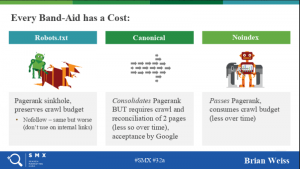Oh, My Faking Head!
by Greg Peverill-Conti , Columnist, April 27, 2017
Last month I penned a little somethin’ somethin’ here on the whole fake news issue. Most thinking people agree that false information and hate speech are bad things that should be avoided and discouraged.
This leads me to wonder how people who disagree with this perspective view the issue. How could someone argue that fake news and hate speech are NOT problems? To understand that thought process, let’s look at some recent attempts to engage teens to deal with the fake news problem.
In the past week or so, Google announced two initiatives it hopes will improve the situation.
Over in the UK, the company is piloting a program it calls Internet Citizens. The program — a series of day-long workshops for teens across the country — aims to teach them how to deal with hate speech and fake news.
Wired quotes Efe Ezekiel, a youth mentor, describing the program as “an outstanding way for young people to learn about issues, topics and politics that are affecting their daily lives via social media and the digital world.”
Closer to home, Google announced two steps to address the issue more broadly. The first is a screening system that will cut down on the chance that Google will return false news in the first place. The second is a change to the autofill feature in the Google search bar. The update will prevent the autocomplete feature from presenting offensive entries.
The Associated Press quotes Larry Chiagouris, a marketing professor at Pace University in New York: “Fake news is careening out of control in some people’s eyes, so advertisers are getting very skittish about it. Anything Google can do to show it is trying to put a lid on it and prevent it from getting out of hand… will be seen as a good thing.”
None of this seems especially controversial to me. For some, however, this all smacks of maleficence.
Let’s start with InfoWars. Here’s the site’s lede on the changes from Google: “Popular search engine Google is reconfiguring its algorithm so that so-called ‘fake news’ does not appear at the top of search results.”
Why “so-called?” Because InfoWars has a bone to pick with Google. Apparently, a Google contractor recommended that InfoWars’ content be rated as of low to medium quality. A purportedly leaked document cites the reasons as InfoWars having a “poor reputation and a conspiratorial bent.”
Now I don’t know how familiar you are with InfoWars but the site does have a pretty strong conspiratorial agenda. Here are just a few of the theories you’ll find on the site: Who can forget the the real truth behind Sandy Hook, or the “false flag” chemical attack in Syria. So, yeah, I’d say we have a problem here.
But what do the readers of InfoWars think? It’s clear that many believe the site and feel threatened by anyone calling it into question. Here are just a few comments from the Google story:
“Libtard translation: Fake news = any info that disagrees with our agenda.”
“The flaws in Liberal Fascism is exposed in their need for censorship and Fake News Propaganda. Like putting Lipstick on a Hog.”
“Correction, they rewrite their algorithms to bury news they don’t approve of. Everywhere freedom is finally truly at risk.”
Breathe in . . . breathe out . . .
Only slightly less out there, Breitbart focused — like a laser on the head of a shark — on the teen workshop news. There’s nothing radically offputting about the story. It’s just a fairly well-written and factual summary of the news.
This is actually true of many Breitbart stories. They don’t have a bent for the most part. This allows the site to defend itself against critics who attempt to paint it in a negative way. It’s a pretty smart strategy.
What that fig leaf ignores are the conversations that spawn on the site. If you wake up one morning in the mood for vitriol, you can get a full day’s allowance on Breitbart. Here’s what a few readers had to say about the teen workshop news:
“Google’s training program to brainwash more young people into becoming intolerant, verbally abusive Libtards.”
“A girly-man kind of Pansy corporation. What an embarrassment.”
“‘Fake news’ = conservative journalism… ‘hate speech’ = conservative opinions”
No, really, this is how people on Breitbart are thinking about the fake news issue. And what’s a real problem is that these perspectives — and those expressed on InfoWars — are being circulated at the highest level of power in America. It’s frankly incredible that we’ve reached a point where attempting to root out fake news or hate speech is viewed as an ideological attack on a particular set of views.
If you care about this issue and want to do something about it, you need to really understand what we are up against. There has to be a point when thinking people can take a step back and recognize that something seriously needs to be done.
Google is doing the right thing by trying to educate teens and provide them with the tools to recognize and defeat fake news. What about you?
MediaPost.com: Search Marketing Daily
(56)
Report Post




